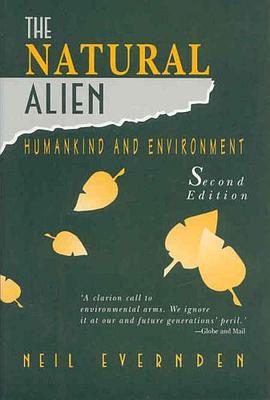

具体描述
In this eloquent and sympathetic book, Evernden evaluates the international environmental movement and the underlying assumptions that could doom it to failure. Beginning with a simple definition of environmentalists as "those who confess a concern for the non-human," he reviews what is inherent in industrial societies to make them so resistant to the concerns of environmentalists. His analysis draws on citing such diverse sources as Merleau-Ponty, Heidegger, and TIME, and examines how we tend to think about the world and how we might think about it.The book does not offer solutions to environmental questions, but it does offer the hope that there can be new ways of thinking and flexibility in human/environmental relations. Although humans seem alienated from our the natural world, we can develop a new understanding of 'self in the world.'The second edition has a new preface and an epilogue in which Evernden analyses the latest environmental catch-phrase: sustainable development.
作者简介
目录信息
读后感
评分
评分
评分
评分
用户评价
相关图书
本站所有内容均为互联网搜索引擎提供的公开搜索信息,本站不存储任何数据与内容,任何内容与数据均与本站无关,如有需要请联系相关搜索引擎包括但不限于百度,google,bing,sogou 等
© 2026 book.wenda123.org All Rights Reserved. 图书目录大全 版权所有




















